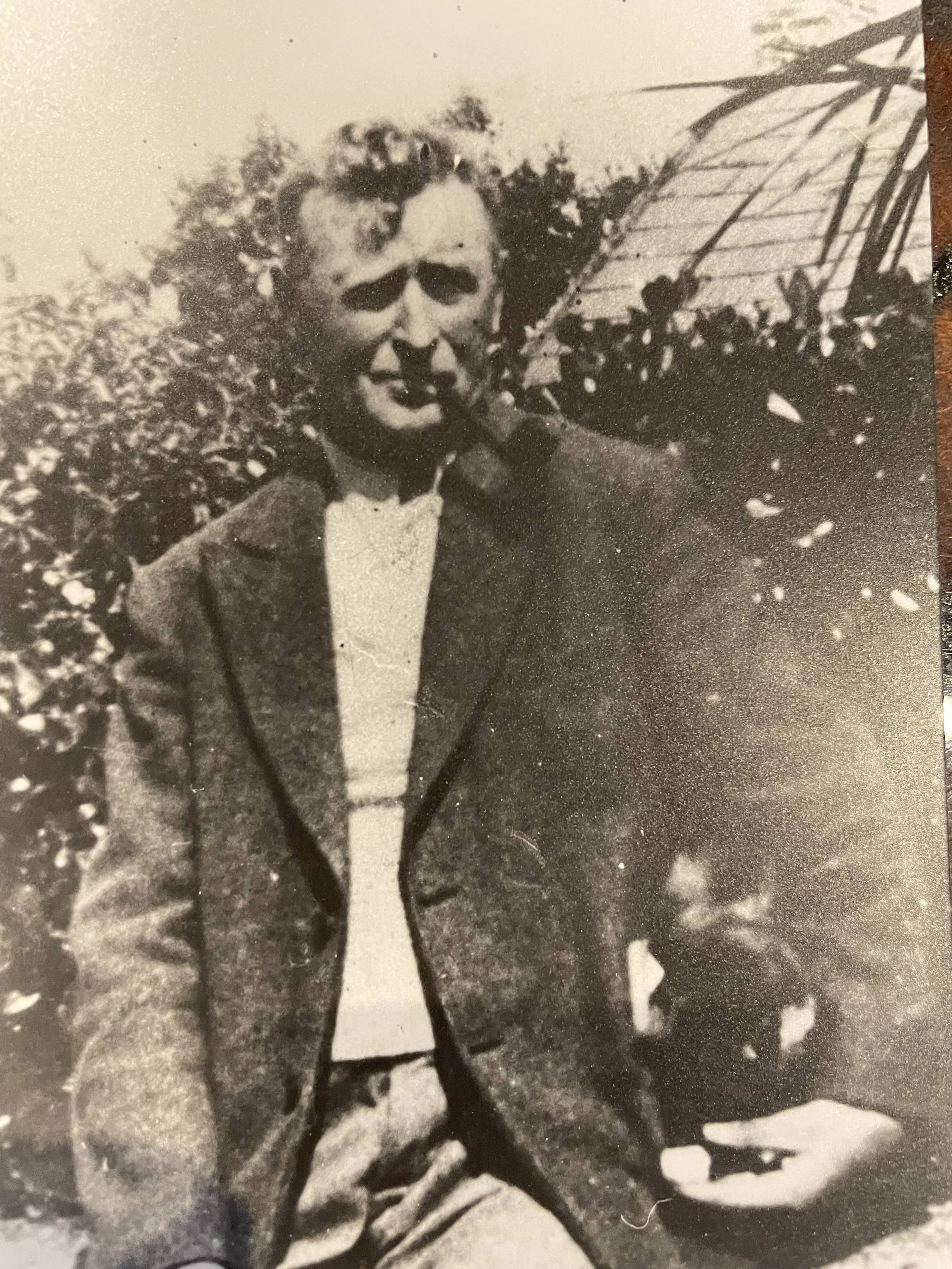Oral Histories
During our National Heritage Lottery Fund Project so many of you got in touch with stories, recollections and photographs of your memories of the greenspace at Sudley; time spent with family and friends, adventures and misadventures. Thank you to everyone who wrote in: we loved hearing about how much this precious greenspace meant and still means to people. Below are two particularly striking stories that were discovered, of which longer interviews have been retained for posterity.
John Edward Ashton
Professor John ashton cbe
John’s Grandfather, John Edward Ashton (pictured), was Head Gardener for the Holt family. Prior to working at Sudley, he had worked in the gardens of several estates including Blacklow in Roby, and Carnatic and Allerton in South Liverpool.
John recalls a family story that in 1926, during the General Strike, Emma Holt called Ashton into the house and said ‘I want you to tell the rest of the servants that they can no longer take vegetables from the garden’. He said, ‘In that case ma’am you can take this as my notice’. Emma Holt’s response was ‘In that case, Ashton, you’ll never work again’. Emma Holt blacklisted him and he didn’t work again until his death in 1943.
John Ashton described how this experience filtered down through the family and left indelible political marks on John Edward Ashton’s descendants, and a tendency towards defending principle and justice. John said “This part of our family history was told to me by my cousin - also John Ashton - some years ago, and it began to make sense to me about why our family have always been very politically motivated, and likely to get involved in support of the underdog in various situations. It all absolutely added up when I heard this story about my grandfather, who died before I was born”.
This story also sheds new light on Emma Holt, whose legacy has always been described with rose tinted glasses, and shows the real and unavoidable power dynamics between working people and their employers at the time.
Joan Harper and friend, circa 1939
Grass collection from Sudley
To read more about Joan Fenney’s memories of Harper’s Dairy, see this 2025 article from the Liverpool Echo.
joan fenney (nee harper)
Harper’s Dairy on Rose Lane was one of the last dairies to close in Liverpool and is one of only two remaining cow house buildings in the city at time of writing. Joan’s father Edward and mother Doris both came from dairy backgrounds and raised their family on the historic dairy site. Joan and her husband took over the dairy in 1972 but stopped keeping cows as legislation and practices changed. In the early days, the Harpers delivered milk to generations of customers using a horse and cart.
Joan told us how her father used to take the cows up to Sudley to graze, mate and give birth. Mr Harper would grow hay there and plough, as well as keeping sheep. “We had no vehicles to move the animals, so us kids had to stand at either side of the road to keep them together. A gang of kids, because there were always ten thousand kids around, it sort of drew everybody together.” Joan told us how Emma Holt was often at her home in Coniston so deals and barters were done between her father and the house staff to use the land. “We always knew when she was coming home as the gardeners would whiten the stones coming into Sudley and we’d say ‘aye aye she’s back’.”
Joan talked about many memories including her visits to the House itself. “When I was four I went to a party in the kitchen. Miss Holt must have been away because anybody that delivered to the house who had children were invited to this party, and…Lizzie the chief cook, I can remember she was showing me where to hide in the house. During the War - I was about 8 or 9 - when Miss Holt was away Mr Roberts the gardener took us to a lookout in the top of the house, where we saw all the barrage balloons across Liverpool. I couldn't get home quick enough because we’d had the May blitz, and during the war we slept down the cellar and that was as safe as houses as far as I was concerned. They told us the old Mr Holt used to go up to the tower and watch for his ships coming in.”




